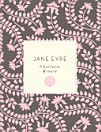Villette
ফেব্ৰু ২০০৪ · Penguin
৪.৪star
৮ টা পৰ্যালোচনাreport
ইবুক
592
পৃষ্ঠা
family_home
যোগ্য
info
reportমূল্যাংকন আৰু পৰ্যালোচনা সত্যাপন কৰা হোৱা নাই অধিক জানক
এই ইবুকখনৰ বিষয়ে
With her final novel, Villette, Charlotte Bronte reached the height of her artistic power. First published in 1853, Villette is Bronte's most accomplished and deeply felt work, eclipsing even Jane Eyre in critical acclaim. Her narrator, the autobiographical Lucy Snowe, flees England and a tragic past to become an instructor in a French boarding school in the town of Villette. There, she unexpectedly confronts her feelings of love and longing as she witnesses the fitful romance between Dr. John, a handsome young Englishman, and Ginerva Fanshawe, a beautiful coquetter. This first pain brings others, and with them comes the heartache Lucy has tried so long to escape. Yet in spite of adversity and disappointment, Lucy Snowe survives to recount the unstinting vision of a turbulent life's journey—a journey that is one of the most insightful fictional studies of a woman's consciousness in English literature.
মূল্যাংকন আৰু পৰ্যালোচনাসমূহ
৪.৪
৮ টা পৰ্যালোচনা
লিখকৰ বিষয়ে
Emily Jane Brontë was the most solitary member of a unique, tightly-knit, English provincial family. Born in 1818, she shared the parsonage of the town of Haworth, Yorkshire, with her older sister, Charlotte, her brother, Branwell, her younger sister, Anne, and her father, The Reverend Patrick Brontë. All five were poets and writers; all but Branwell would publish at least one book.
Fantasy was the Brontë children’s one relief from the rigors of religion and the bleakness of life in an impoverished region. They invented a series of imaginary kingdoms and constructed a whole library of journals, stories, poems, and plays around their inhabitants. Emily’s special province was a kingdom she called Gondal, whose romantic heroes and exiles owed much to the poems of Byron.
Brief stays at several boarding schools were the sum of her experiences outside Haworth until 1842, when she entered a school in Brussels with her sister Charlotte. After a year of study and teaching there, they felt qualified to announce the opening of a school in their own home, but could not attract a single pupil.
In 1845 Charlotte Brontë came across a manuscript volume of her sister’s poems. She knew at once, she later wrote, that they were “not at all like poetry women generally write…they had a peculiar music–wild, melancholy, and elevating.” At her sister’s urging, Emily’s poems, along with Anne’s and Charlotte’s, were published pseudonymously in 1846. An almost complete silence greeted this volume, but the three sisters, buoyed by the fact of publication, immediately began to write novels. Emily’s effort was Wuthering Heights; appearing in 1847 it was treated at first as a lesser work by Charlotte, whose Jane Eyre had already been published to great acclaim. Emily Brontë’s name did not emerge from behind her pseudonym of Ellis Bell until the second edition of her novel appeared in 1850.
In the meantime, tragedy had struck the Brontë family. In September of 1848 Branwell had succumbed to a life of dissipation. By December, after a brief illness, Emily too was dead; her sister Anne would die the next year. Wuthering Heights, Emily’s only novel, was just beginning to be understood as the wild and singular work of genius that it is. “Stronger than a man,” wrote Charlotte, “Simpler than a child, her nature stood alone.”
Fantasy was the Brontë children’s one relief from the rigors of religion and the bleakness of life in an impoverished region. They invented a series of imaginary kingdoms and constructed a whole library of journals, stories, poems, and plays around their inhabitants. Emily’s special province was a kingdom she called Gondal, whose romantic heroes and exiles owed much to the poems of Byron.
Brief stays at several boarding schools were the sum of her experiences outside Haworth until 1842, when she entered a school in Brussels with her sister Charlotte. After a year of study and teaching there, they felt qualified to announce the opening of a school in their own home, but could not attract a single pupil.
In 1845 Charlotte Brontë came across a manuscript volume of her sister’s poems. She knew at once, she later wrote, that they were “not at all like poetry women generally write…they had a peculiar music–wild, melancholy, and elevating.” At her sister’s urging, Emily’s poems, along with Anne’s and Charlotte’s, were published pseudonymously in 1846. An almost complete silence greeted this volume, but the three sisters, buoyed by the fact of publication, immediately began to write novels. Emily’s effort was Wuthering Heights; appearing in 1847 it was treated at first as a lesser work by Charlotte, whose Jane Eyre had already been published to great acclaim. Emily Brontë’s name did not emerge from behind her pseudonym of Ellis Bell until the second edition of her novel appeared in 1850.
In the meantime, tragedy had struck the Brontë family. In September of 1848 Branwell had succumbed to a life of dissipation. By December, after a brief illness, Emily too was dead; her sister Anne would die the next year. Wuthering Heights, Emily’s only novel, was just beginning to be understood as the wild and singular work of genius that it is. “Stronger than a man,” wrote Charlotte, “Simpler than a child, her nature stood alone.”
এই ইবুকখনক মূল্যাংকন কৰক
আমাক আপোনাৰ মতামত জনাওক।
পঢ়াৰ নির্দেশাৱলী
স্মাৰ্টফ’ন আৰু টেবলেট
Android আৰু iPad/iPhoneৰ বাবে Google Play Books এপটো ইনষ্টল কৰক। ই স্বয়ংক্রিয়ভাৱে আপোনাৰ একাউণ্টৰ সৈতে ছিংক হয় আৰু আপুনি য'তে নাথাকক ত'তেই কোনো অডিঅ'বুক অনলাইন বা অফলাইনত শুনিবলৈ সুবিধা দিয়ে।
লেপটপ আৰু কম্পিউটাৰ
আপুনি কম্পিউটাৰৰ ৱেব ব্রাউজাৰ ব্যৱহাৰ কৰি Google Playত কিনা অডিঅ'বুকসমূহ শুনিব পাৰে।
ই-ৰীডাৰ আৰু অন্য ডিভাইচ
Kobo eReadersৰ দৰে ই-চিয়াঁহীৰ ডিভাইচসমূহত পঢ়িবলৈ, আপুনি এটা ফাইল ডাউনল’ড কৰি সেইটো আপোনাৰ ডিভাইচলৈ স্থানান্তৰণ কৰিব লাগিব। সমৰ্থিত ই-ৰিডাৰলৈ ফাইলটো কেনেকৈ স্থানান্তৰ কৰিব জানিবলৈ সহায় কেন্দ্ৰত থকা সবিশেষ নিৰ্দেশাৱলী চাওক।








